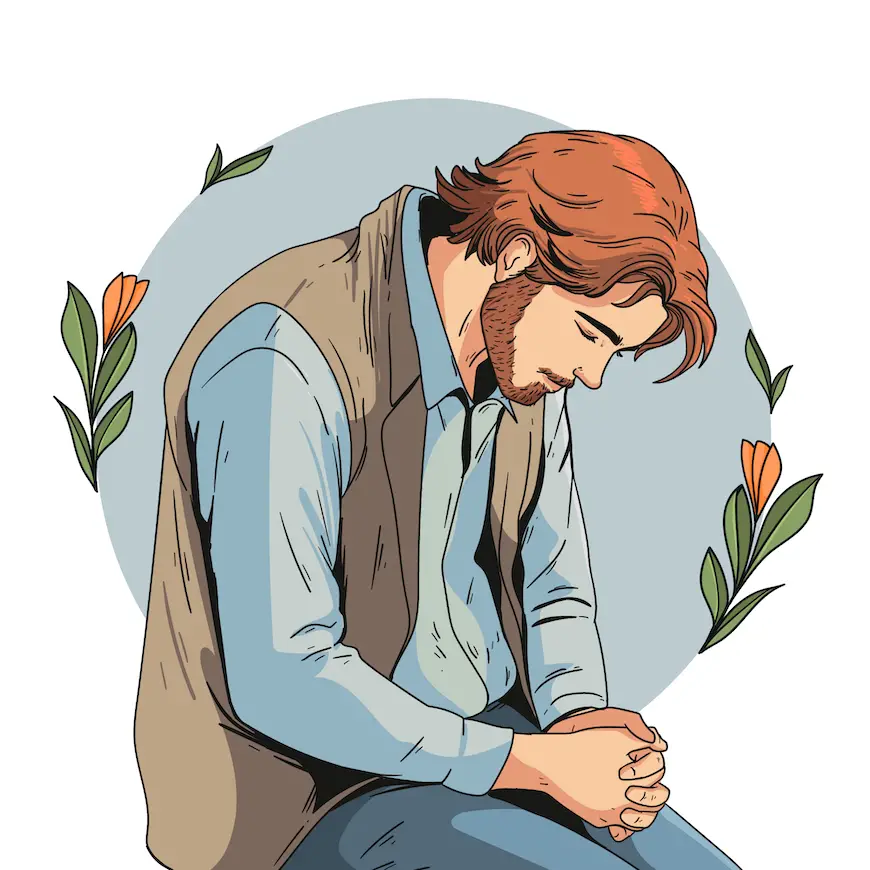Grief is an unfortunate but unavoidable fragment of life. Could be due to the death of the ones who we most love, losing a person that you care It’s, or any other changes in job or life modifications. Grief is the general answer to dealing with loss. Many things that we love, and lose are going to create grief inside.
What could be the five phases of grief? Throughout this article you will be able to find these stages and how to cope with them.
Many different phases of grief are going to be mentioned, but we start first by presenting them one after the other. Grief can happen when we lose someone we love during death or ending a relationship. Numerous complex thoughts, emotions, and behaviours could suddenly appear after we experience loss.
To be more specific, these stages should not be taken as ideas. However, not everyone experiences these stages the same way due to surrounding circumstances. However, understanding them can help you to connect your emotions when you may feel it.
1- Stage no.1 of Grief: Denial
Denial is the period when your mind refuses reality, and you think that everything is not true. Simply, your mind is not accepting reality. It is a defense apparatus that aids us in guarding ourselves from the shock wave of a hurtful hardship. We will mention below certain examples of types of denials that could be faced during this phase.
– Rejecting the reality of a close person, we love left us
– Declining or avoiding the topic in discussion
– Maintaining the loss is not the right
2- Stage no.2 of Grief: Anger
The second phase is called anger after understanding the reality of what happened. Once a person tries to comprehend the data they received, they frequently experience anger.
Anger could have a lot of forms because when you realize what has already happened to you, a certain reaction towards yourself, family members, doctors, and God. Anger is a normal part of mourning. However, it could be offensive to the ones we love because this anger will reflect on our relationship with them. For example, provided below are specific examples to enhance understanding:
– In case of death, you could blame the medical team
– In case of love separation, you could also blame family members for a lack of support
– Feeling anger toward God why he did this to me
– Feeling a short temper, the presence of patience is at its lowest.
3- Stage no.3 of Grief: Bargaining
The third place we want to describe now is bargaining. At this stage, any person will start working on himself by checking if it is possible that I did ask the doctor, what if I supported my love with extra caring it could have changed his mind. These questions often come to you personally when you are alone. If we often feel hopeless and sad, the best conversation is to start looking for ways to compromise or accept ourselves as a price for freedom from this prison.
4- Stage no.4 of Grief: Depression
You can start by mentioning that depression mode is going to be part of your daily life. Sometimes, when you lose a precious person, the sadness cannot leave you and it comes and goes depending on the circumstances. Depression is a feeling of sadness and hopelessness, often caused by the death of a loved one. Some examples of depression are mentioned below.
– Moods of sadness
– Loss of attention in activities you usually adore
– Sleep disorder
– Losing or gaining weight
– Absence of energy
– Feeling nervous or restless
– Feeling insignificant or guilty
– Decreased attentiveness.
Grief is a deep feeling of depression. It is important to accept and manage these emotions. While severe grief can be intense and may affect daily mental thinking procedures temporarily, if these feelings continue and significantly interfere with your ability to live your life after an extended period, it may be indicative of prolonged grief disorder. Seeking support from loved ones is very important. Sometimes you also need the right person to be next to you. However, certain things cannot be fixed after hard times.
5- Stage no.5 of Grief: Finding support – acceptance even if not
Upon reaching this stage of acceptance, we cease to resist or battle with our grief. This battle will never end, because when there is pure love, you cannot imagine yourself without it. Instead, we devote our energy to completing the life and advance. For sure, we will actively celebrate the impact our loved ones had on our lives while finding ways to steer forward.
Recognizing that the grieving journey is unique to each individual is essential. It varies from human to human. Understanding how to navigate through grief is vital for both your physical and mental well-being.
Even though grief typically doesn’t call for formal treatment, establishing a support network can significantly aid in managing its challenges. Sharing your feelings with others can alleviate the emotional burden you’re experiencing, aiming to mitigate any adverse effects on your health and well-being. Assistance comes from a various sources, including:
– Family and close friends
– Therapists
– Grief support groups
Information about grief support services, including support groups, can be found on local and state websites.
Additionally, to inform you much better about what could help you to overcome this hard time, it is to always remember the good days and not take them for granted. Trying to avoid losing the one you love, except death which is a hard period, you should do it. However, if the person you love is a true one, you should not lose him. Try to close the gaps as soon as possible and stick together to be part of success together. Life is short but companies will be much better and it is worthwhile being a team that will lift you higher.
